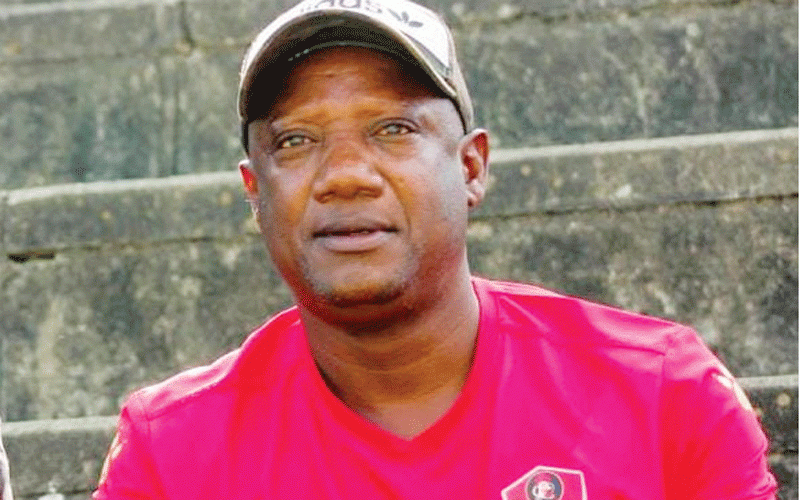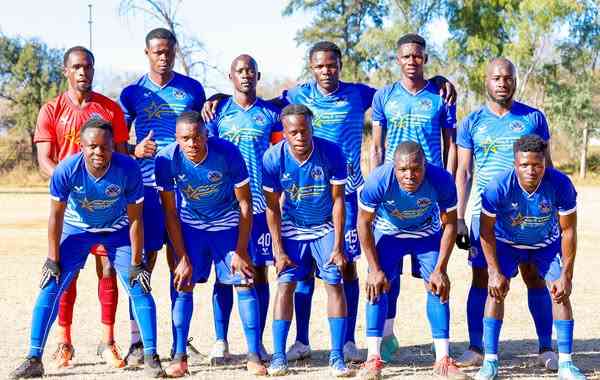
CHICKEN Inn secretary Tavengwa Hara, who is eyeing the Zifa board member’s post in the upcoming elections, says local football needs to go back to basics to kick-start development.
The top Bulawayo lawyer, with over 20 years’ experience in football administration, says it is important for the board to lend an ear to football stakeholders right round the country and implement ideas that come from the wide spectrum of football enthusiasts.
“Zimbabwean football needs to be aligned with the statutes, it needs development, it needs fairness, it needs grassroots development up to the senior level teams and the ladies teams need to recognised in the same way as their male counterparts, without any undue discrimination. We have seen what has been happening in our football. We have been there for more than 20 years. Football has to change, we have seen the positives and the negatives so it’s just adding more positives and doing away with the negatives. I am inspired by the experience I have in football administration at club football level and I think it's high time I go national and move to the Zifa board level and try to implement things and embrace ideas from all over the country, ideas from all the councillors. I am now ready,” Hara said.
The SuperSport-trained football administrator added: “If I am elected as a Zifa board member, my vision is to go there and implement what the Congress and what football stakeholders in the country want to be applied. I cannot go there and implement my personal decisions; normally it will have to be a collective decision as a board.”
He also emphasised on good governance as key in national football administration.
“The other thing is that we need to practice good governance, we need to implement and align the Zifa constitution with what is on the ground. We need to align the constitution with the Fifa statutes and for football to develop especially from the grassroots. Mainly, the board should just be the implementer, it should just be there to lead and so forth but we cannot go in there to implement our personal decisions without the vision of the congress; we will be there do to what the congress will endorse. It cannot be a one-man thing. We can’t go in there with personal decisions. I wish we tell the electorate the truth that you are voting for us so that we implement your decisions and resolutions that will be ratified by congress. We can’t go in there and say I want this to be done, that is not the work of the board,” Hara said.
He will battle it out with several other candidates for the Zifa board member’s post who include former Warriors’ manager Sharrif Musa, Alois Bunjira, Highlanders secretary Morgen Dube, former Zifa spokesperson Xolisani Gwesela, former Warriors’ coach Sunday Chidzambga, Admore Chivero, ex-Zifa Southern Region chairperson Andrew Tapela, Tizirayi Luphahla and women’s football administrator Sibekiwe Ndlovu, among others.
Prophet Walter Magaya, Caps United owner and outgoing Premier Soccer League chairperson Farai Jere and legend Benjani Mwaruwari did not pass the vetting process to contest for the Zifa presidency post.
- ‘Zifa officials a confused lot’
- Yadah turn to Samba style
- Magaya stadium project hailed
- Gumbo set for big send off
Keep Reading
Mwaruwari has since appealed the decision to bar him while Jere accepted the verdict.
The candidates for the presidency are businessman Nqobile Magwizi, Philemon Machana, Marshall Gore, Martin Kweza, Twine Phiri and Makwinji Soma-Phiri.
For the vice-presidency, Gift Banda did not sail through the vetting process and the candidates are PSL chief executive officer Kennedy Ndebele, Omega Sibanda, Peter Dube, James Takavada while the women’s quota has Mavis Gumbo, Winnet Murota, Joyce Kapota and Loveness Mukura.
Of the vetting process, Hara said: “From what the Zifa Normalisation Committee requested from us when we were filling the nomination papers and submitting them, it was a democratic process and everyone who was interested had a chance to read the nomination papers and see what was required. Personally I wanted to be an ordinary board member. I was given the nomination papers, read and fill them. I didn’t see any unfairness. It was democratic.”











